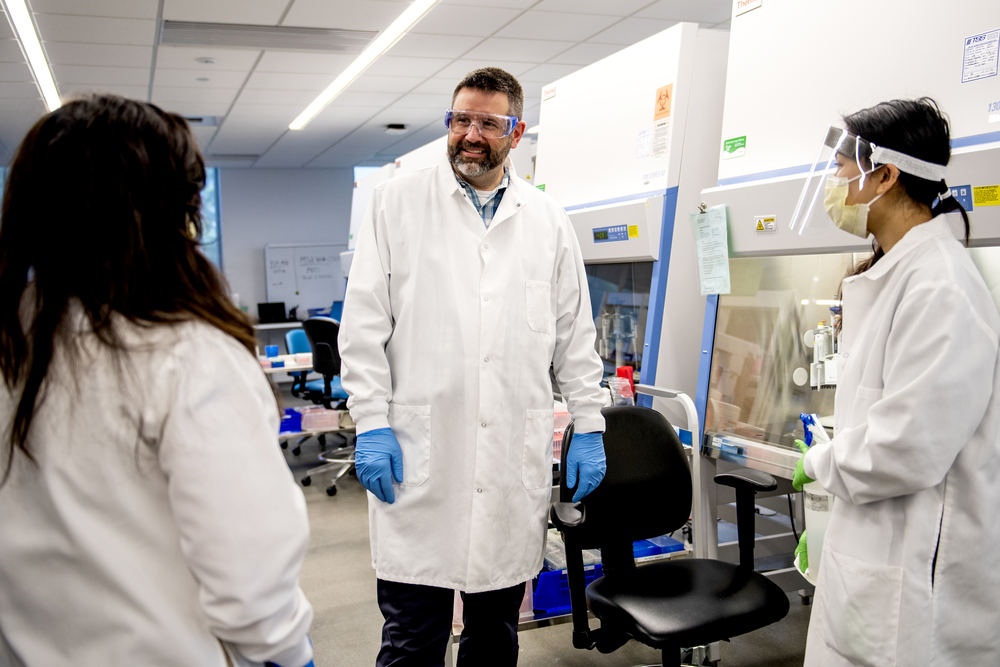The Amgen Biotech Experience (ABE), managed by the Amgen Foundation, a philanthropic branch of the renowned Amgen biotechnology company, is a hands-on, inquiry-based science education program designed for middle and high school students. With 27 program sites across 16 countries and a commitment of over $42 million from the Amgen Foundation, the ABE is reshaping STEM education and fostering a hunger for knowledge that transcends borders.
“The Amgen Biotech Experience, is at the beginning of the pipeline [to a career in life sciences],” says Jared Auclair, the program director of the ABE Massachusetts program, housed at Northeastern’s Innovation Campus in Burlington, MA. Auclair is also the Vice Provost Research Economic Development and the Director of Bioinnovation at Northeastern.
“We know that if we don’t spark interest in students for life sciences during the late middle school and early high school timeframe, a large number who weren’t considering life sciences, never will.”
According to Auclair, the ABE program has overlapping goals of providing professional development to middle and high school teachers and implementing the ABE curriculum into classrooms.
“It’s essentially deploying a lab into a classroom. The curriculum focuses on a number of things, from the basics like how to use a micropipette or run a DNA gel, to a more personalized medicine type of lab where students can really think about how therapeutics are directed to an individual person,” Auclair explains.
Regarding the professional development goal, Auclair mentioned that educators are taught how to teach the experiments and curriculum provided by the ABE program.
“We want educators to understand why these experiments were chosen [to be in the curriculum] and how they’re applicable to the biotech industry. We’re allowing them to understand the biotech industry and how to engage students in it. Many teachers are trained as educators and not scientists, so they don’t know the industry as well as people at Amgen.”
As part of ‘deploying a lab into a classroom,’ the ABE provides students and teachers with implementation resources and research-grade equipment in the form of physical kits, some of which are loaned to teachers in the area at no cost.
Another key objective of the program is to foster scientific literacy, achieved through communicating science in an accessible and easily understood way.
“Part of the reason that hands-on [learning] is so important is to explain to students what they’re doing and what it means. It’s really, you know … the most rewarding part of the program, watching students’ eyes light up with excitement for science, and realizing not only, are they excited by it, but that they are smart enough and able to do it.”
Not only are the efforts of this program encouraging students in the United States, but the ABE program’s global expansion has also been well received, especially in regions where science education is less accessible than in the U.S.
“It’s been a really great opportunity to build this community of people trying to do similar things around the world. One thing I’ve learned in my job … is people are people no matter where you are. Students are students, no matter where you are. Everybody is eager to learn … which the program highlights and helps build some of that hunger,” Auclair shares.
In the future, Auclair hopes to expand the ABE Massachusetts program to more regions of the state, form a partnership with ABE Rhode Island, recruit more high-school students to intern for the program, and implement other curriculum topics such as bioinformatics or labs on gene-editing.
“Students are going into or pursuing [higher education] in the life sciences who would have never considered it. That I think is the the beauty of the program. It’s a program that can empower people and spark interest in [STEM] opportunities.”

